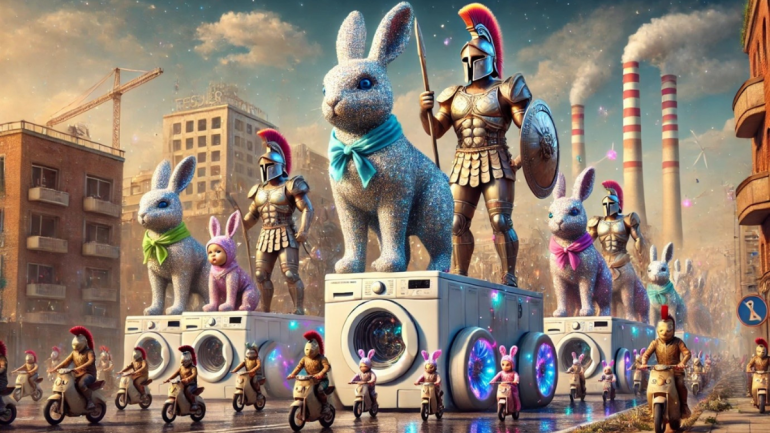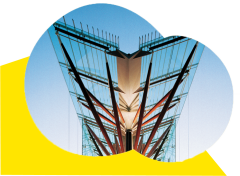By Dr Helena Pacitti, School of Psychology, UNSW Sydney and A/Prof. Jason M. Lodge, School of Education and Faculty of Humanities, Arts, & Social Sciences, The University of Queensland
Published 4 July 2024
The New South Wales Higher Education Summit 2024 was held on Friday 28 June. The Summit had a focus on artificial intelligence and assessment. The event was well attended with some fascinating conversations. These are our reflections on the Summit.
Across the speakers, many metaphors and similes were used to help explain where we currently find ourselves as we grapple with our new robot friends in the form of AI. Keynote speaker, A/Prof. Michael Cowling (CQU) painted a picture of a war with AI and fellow keynote speaker, A/Prof. Tim Fawns (Monash) talked about the babies we risk throwing out with the glitter bombed bath water of new technologies.
Across all the speakers we heard about lanes, Trojan rabbits, shovels, washing machines, and a range of other metaphors aimed at helping us make sense of where higher education is at in this stage of AI’s evolution.
Going back to the work of George Lakoff (e.g. Lakoff & Johnson, 2008) and others, metaphors help us to make sense of ideas and concepts, particularly when there is a high level of uncertainty and complexity.
It is fair to say that, as of mid-2024, there are undoubtedly high levels of uncertainty and complexity in higher education in Australia and around the world.
Generative AI has emerged in a period of particular uncertainty in Australian higher education. The Universities Accord, geopolitical unease, pending environmental catastrophe, and economic factors such as high costs of living, a national housing crisis and low unemployment have pounded Australian higher education hot on the heels of the COVID-19 pandemic.
Setting aside the immediate uncertainty caused by the imminent establishment of the Australian Tertiary Education Commission and possible caps on student numbers, evolving technologies are significantly intensifying the level of uncertainty and complexity Australian higher education is currently grappling with.
Making meaningful change to policy and practice in this context is a wicked challenge.
There does not seem to be any clear sense about what the future holds. Deep disagreement about the future evolution of AI abounds. Will GPT-5 be sentient? Are large language models reaching their limits? Is artificial general intelligence one year away or 50 years away? The University of Sydney’s Prof. Danny Liu, suggested that we need to plan for superintelligent robots because it is a matter of when, not if, they come into existence (yikes!).
Given this uncertainty and complexity (tinged with perhaps a mild anxiety at the thought of superintelligent machines), it is no wonder we reach for metaphors to make sense of it all. UNSW’s Prof. Alex Steel reminded us of the famous quote of George E. P. Box: “all models are wrong but some are useful.”
As Lakoff’s work warns us, the challenge we face is not to let our metaphors become our reality. While useful, none can ever fully capture the messiness of the challenges that AI has both created and exacerbated (yes, those pre-AI challenges are still floating in the bathwater). These challenges are something that we will need to continue to grapple with and accept, at least to a degree.
There are good reasons why there is no simple answer to be found anywhere in the world about how education sectors and institutions should adapt to AI.
Perhaps we need to use our best shovels to build Trojan rabbits and follow lane 1 to war with glitter festooned babies riding robots made of washing machines. Whatever the metaphor we use to make sense of where we are and where we are going, our thinking and our practice need to remain grounded in what really matters in higher education. This was a point eloquently made by both A/Prof. Jan McLean from UTS and UQ’s Prof. Kelly Matthews.
Looking after and learning from our students, working together and looking after each other to innovate in ways that enhance and build upon our values, and what we know from decades of research really matters in learning and teaching is perhaps more important than ever.
High quality higher education is relational, not transactional. This was a theme that echoed time and again during the Summit.
Emerging research, including ours, also reinforces the critical role of adaptability, resilience, and self-regulated learning as foundational skills and attributes in times of uncertainty.
In the absence of a dedicated enabler for innovation in Australian higher education, open collaborative events like UNSW’s NSW Higher Education Summit are critical mechanisms for sharing and supporting each other as we ride our Trojan rabbits into an unknown and unknowable future. We look forward to the next opportunity to connect with colleagues as we go on that journey together.
Reference
- Lakoff, G., & Johnson, M. (2008). Metaphors we live by. University of Chicago press.
***
Reading this on a mobile? Scroll down to learn about the authors.

